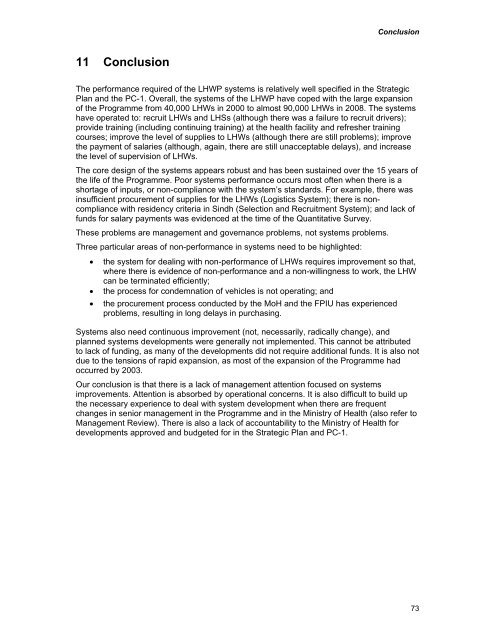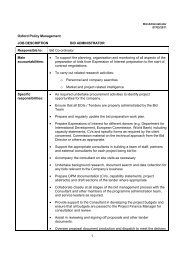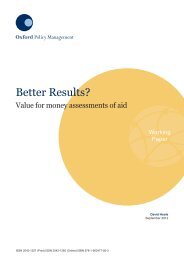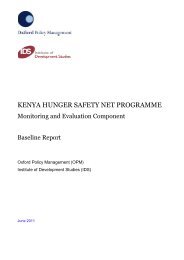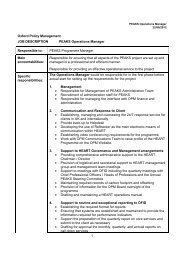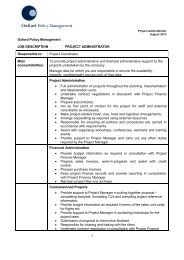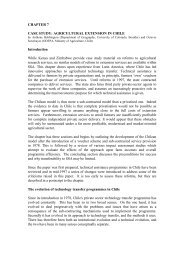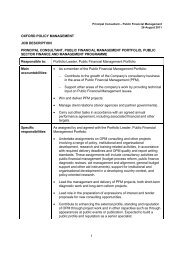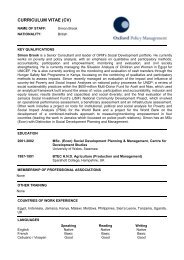LHW Systems Review - Oxford Policy Management
LHW Systems Review - Oxford Policy Management
LHW Systems Review - Oxford Policy Management
You also want an ePaper? Increase the reach of your titles
YUMPU automatically turns print PDFs into web optimized ePapers that Google loves.
Conclusion11 ConclusionThe performance required of the <strong>LHW</strong>P systems is relatively well specified in the StrategicPlan and the PC-1. Overall, the systems of the <strong>LHW</strong>P have coped with the large expansionof the Programme from 40,000 <strong>LHW</strong>s in 2000 to almost 90,000 <strong>LHW</strong>s in 2008. The systemshave operated to: recruit <strong>LHW</strong>s and LHSs (although there was a failure to recruit drivers);provide training (including continuing training) at the health facility and refresher trainingcourses; improve the level of supplies to <strong>LHW</strong>s (although there are still problems); improvethe payment of salaries (although, again, there are still unacceptable delays), and increasethe level of supervision of <strong>LHW</strong>s.The core design of the systems appears robust and has been sustained over the 15 years ofthe life of the Programme. Poor systems performance occurs most often when there is ashortage of inputs, or non-compliance with the system’s standards. For example, there wasinsufficient procurement of supplies for the <strong>LHW</strong>s (Logistics System); there is noncompliancewith residency criteria in Sindh (Selection and Recruitment System); and lack offunds for salary payments was evidenced at the time of the Quantitative Survey.These problems are management and governance problems, not systems problems.Three particular areas of non-performance in systems need to be highlighted:• the system for dealing with non-performance of <strong>LHW</strong>s requires improvement so that,where there is evidence of non-performance and a non-willingness to work, the <strong>LHW</strong>can be terminated efficiently;• the process for condemnation of vehicles is not operating; and• the procurement process conducted by the MoH and the FPIU has experiencedproblems, resulting in long delays in purchasing.<strong>Systems</strong> also need continuous improvement (not, necessarily, radically change), andplanned systems developments were generally not implemented. This cannot be attributedto lack of funding, as many of the developments did not require additional funds. It is also notdue to the tensions of rapid expansion, as most of the expansion of the Programme hadoccurred by 2003.Our conclusion is that there is a lack of management attention focused on systemsimprovements. Attention is absorbed by operational concerns. It is also difficult to build upthe necessary experience to deal with system development when there are frequentchanges in senior management in the Programme and in the Ministry of Health (also refer to<strong>Management</strong> <strong>Review</strong>). There is also a lack of accountability to the Ministry of Health fordevelopments approved and budgeted for in the Strategic Plan and PC-1.73


